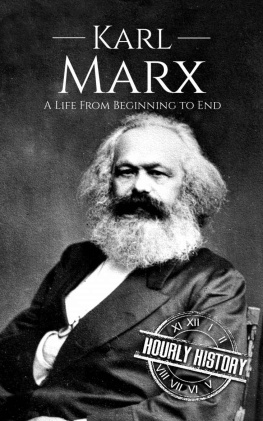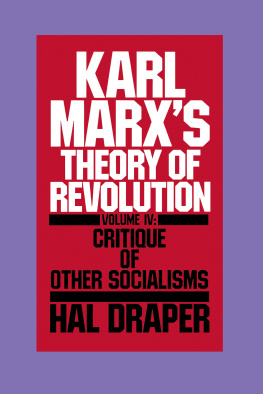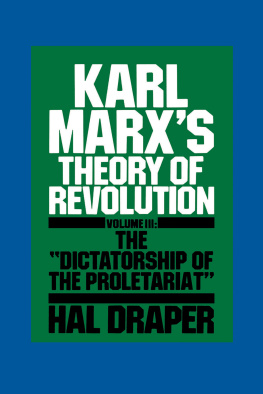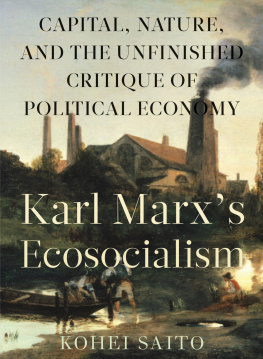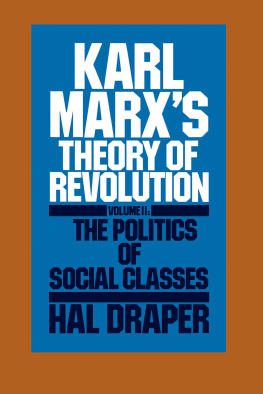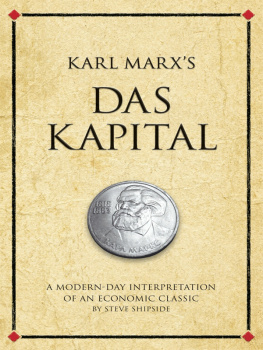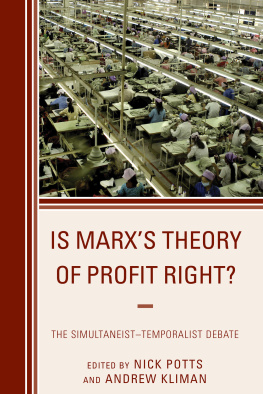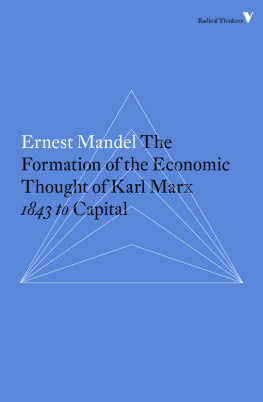Daniel Bensaeid - The Dispossessed: Karl Marxs Debates on Wood Theft and the Right of the Poor
Here you can read online Daniel Bensaeid - The Dispossessed: Karl Marxs Debates on Wood Theft and the Right of the Poor full text of the book (entire story) in english for free. Download pdf and epub, get meaning, cover and reviews about this ebook. year: 2021, publisher: University of Minnesota Press, genre: Romance novel. Description of the work, (preface) as well as reviews are available. Best literature library LitArk.com created for fans of good reading and offers a wide selection of genres:
Romance novel
Science fiction
Adventure
Detective
Science
History
Home and family
Prose
Art
Politics
Computer
Non-fiction
Religion
Business
Children
Humor
Choose a favorite category and find really read worthwhile books. Enjoy immersion in the world of imagination, feel the emotions of the characters or learn something new for yourself, make an fascinating discovery.

- Book:The Dispossessed: Karl Marxs Debates on Wood Theft and the Right of the Poor
- Author:
- Publisher:University of Minnesota Press
- Genre:
- Year:2021
- Rating:4 / 5
- Favourites:Add to favourites
- Your mark:
- 80
- 1
- 2
- 3
- 4
- 5
The Dispossessed: Karl Marxs Debates on Wood Theft and the Right of the Poor: summary, description and annotation
We offer to read an annotation, description, summary or preface (depends on what the author of the book "The Dispossessed: Karl Marxs Debates on Wood Theft and the Right of the Poor" wrote himself). If you haven't found the necessary information about the book — write in the comments, we will try to find it.
Daniel Bensaeid: author's other books
Who wrote The Dispossessed: Karl Marxs Debates on Wood Theft and the Right of the Poor? Find out the surname, the name of the author of the book and a list of all author's works by series.
The Dispossessed: Karl Marxs Debates on Wood Theft and the Right of the Poor — read online for free the complete book (whole text) full work
Below is the text of the book, divided by pages. System saving the place of the last page read, allows you to conveniently read the book "The Dispossessed: Karl Marxs Debates on Wood Theft and the Right of the Poor" online for free, without having to search again every time where you left off. Put a bookmark, and you can go to the page where you finished reading at any time.
Font size:
Interval:
Bookmark:
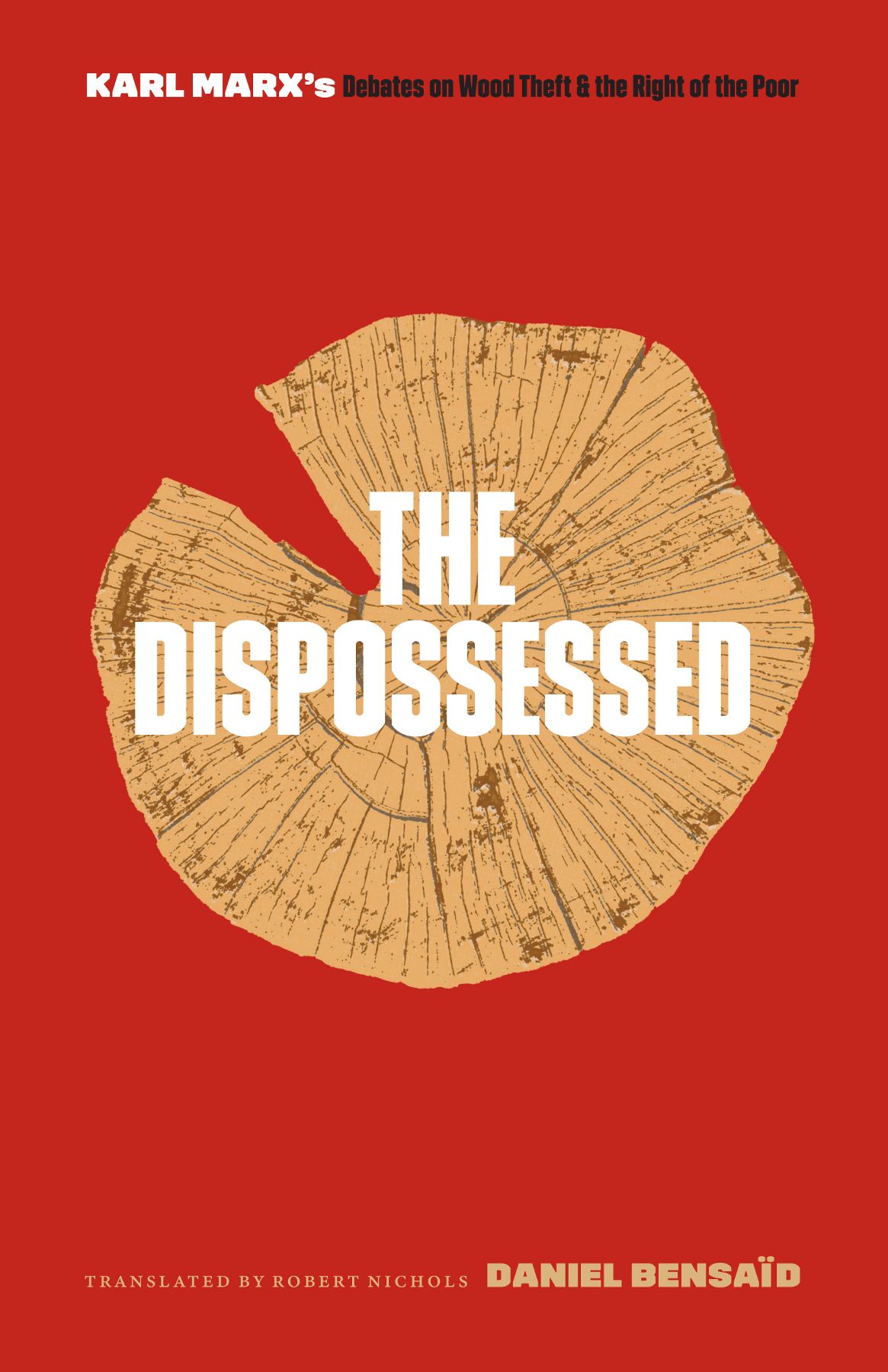
Daniel Bensad
Translated and with an Introduction by Robert Nichols

University of Minnesota Press
Minneapolis
London

The University of Minnesota Press gratefully acknowledges financial support for the publication of this book from the Centre national du livre.
The Dispossessed was originally published in French as Les dpossds: Karl Marx, les voleurs de bois et le droit des pauvres. Copyright La fabrique ditions, 2007.
Proceedings of the Sixth Rhine Province Assembly, Third Article by Karl Marx was originally published in German in the supplement to Rheinische Zeitung, nos. 298, 300, 303, 305, and 307 (October 25, 27, and 30, November 1 and 3, 1842).
Copyright 2021 by the Regents of the University of Minnesota
All rights reserved. No part of this publication may be reproduced, stored in a retrieval system, or transmitted, in any form or by any means, electronic, mechanical, photocopying, recording, or otherwise, without the prior written permission of the publisher.
Published by the University of Minnesota Press
111 Third Avenue South, Suite 290
Minneapolis, MN 55401-2520
http://www.upress.umn.edu
ISBN 978-1-4529-6562-8 (ebook)
Library of Congress ebook record available at https://lccn.loc.gov/2020048339
The University of Minnesota is an equal-opportunity educator and employer.
Robert Nichols
Karl Marx
Robert Nichols
We wanted a world in which the right to existence prevailed over the right to property, popular power over commodity dictatorship, the logic of needs over that of profits, public good over private egoism.
Daniel Bensad, An Impatient Life
This volume offers readers an unusual constellation of texts. In it, an essay from 2007 by the French philosopher Daniel Bensad is arranged alongside five short journalistic pieces by Karl Marx from the 1840s. While not exactly concentric to one another, these writings treat similar themes. In his journalism, we see Marx working through a clutch of concepts that would long occupy his intellectual and political agenda: property, theft, law, publicity, and the commons. Bensads essay echoes these thematic concerns, explicitly building on Marx. At the same time, because the texts in question were originally written in different languages and composed more than a century and a half apart, a sequence of gulfs divides them in space, time, culture, and idiom. Therefore, in presenting these together here, this volume is intended as an experiment in arranging a series of reflections that share more than an overlapping set of substantive concerns; they might also be thought to model a mode of intervening into their respective eras. If the texts relate to one another effectively, it will not be because Bensad simply builds on Marx in the linear manner of layering or incrustation but rather because each thinkers writing works to perform an analogous function for its own period and context. Accordingly, they are offered here together not merely as a collection conventionally understood but as a deliberately asynchronic juxtaposition.
This introductory essay is intended to facilitate this critical juxtaposition. It is organized into three parts. I first provide a preliminary sketch of the major themes and lines of inquiry contained within these works. Second, because Daniel Bensad has only recently become well known to English-speaking audiences, I offer an overview of those details of his life and works that, in my estimation, will be most helpful to the uninitiated (including a list of translated and untranslated writings). Finally, I reflect more generally on this constellation of texts in terms of their critical utility for apprehending key features of our own time, with particular reference to what I will term crises of kleptocracy.
Daniel Bensads essay The Dispossessed is succinct and clear enough to demand little by way of secondary exegesis. Even if this were not the case, it would be entirely unsuitable to offer commentary on the piece as if it were simply a contribution to political philosophy traditionally understood. After all, Bensads essaymuch like his oeuvre more generallyis not motivated by abstract speculation for its own sake. Rather, it emerges as a practical intervention into a concrete context, one in which the author is already situated and engaged. Accordingly, this section offers less an explication of meaning than a study of the essays function as an intervention. To understand this requires grasping something of the political and intellectual context into which the essay is intervening, which is in turn facilitated by familiarity with the author and his times.
Bensads essay was originally published in 2007, arriving just on the cusp of the largest global recession since the 1930s. In the years since, critical commentators have struggled to stabilize this chaotic period. Consider just some of the frequently cited narrative plot points: As the U.S. subprime mortgage bubble burst in mid-2007, it led to the rapid devaluation of mortgage-backed securities, a liquidity crisis among major U.S. banks, and a major drop in stock markets around the world. The U.S. federal government tried to stop the hemorrhaging by using public funds as a tourniquet. The Federal National Mortgage Association (Fannie Mae) and Federal Home Loan Mortgage Corporation (Freddie Mac) were directly taken over, while trillions of dollarswhich might have been otherwise used for public goods and infrastructure projectswere employed to bail out major corporations such as Merrill Lynch and AIG. By 2009, problems had spread to the European Union, adding fuel to the sovereign debt crisis there. Once again, huge quantities of public funds were used to prop up the failing investment and banking firms that had sparked the crisis in the first place. Unemployment in some European countries exceeded 25 percent during this period. Beyond Europe and North America, the crisis manifested differently. In an attempt to shield themselves from the mercurial caprices of financial capital, transnational corporations and sovereign wealth funds alike went abroad in search of more stable investments in food and fuel. While massive spikes in prices on the consumer side of both commodities over the previous decade had already been pressing hard on the most vulnerable in the Global South, the global financial collapse did little to improve their plight. Even more ominously, the convergent effect of these processes fed into a wave of land grabs as powerful global actors sought an anchor in primary resource production. The impact on Africa was most dramatic. As the World Bank noted, the average annual expansion of land-acquisition projects by major corporations accelerated dramatically between 2008 and 2009, going from 4 to 56 million hectares. Moreover, more than 70 percent of such demand has been in Africa; countries such as Ethiopia, Mozambique, and Sudan have transferred millions of hectares to investors in recent years.
Critical commentary has struggled to locate these events within a coherent conceptual frame. What, if anything, unifies these otherwise disparate moments and locales? How ought they be conceptualized, in relation to one another and/or with respect to previous iterations of these phenomena? What vocabulary is appropriate for apprehending this dynamic, shifting, and, by some accounts, ongoing period of global capitalist crisis? For some, 200710 was another cycle in the primitive accumulation of capital, first theorized by Marx in Part VIII of
Next pageFont size:
Interval:
Bookmark:
Similar books «The Dispossessed: Karl Marxs Debates on Wood Theft and the Right of the Poor»
Look at similar books to The Dispossessed: Karl Marxs Debates on Wood Theft and the Right of the Poor. We have selected literature similar in name and meaning in the hope of providing readers with more options to find new, interesting, not yet read works.
Discussion, reviews of the book The Dispossessed: Karl Marxs Debates on Wood Theft and the Right of the Poor and just readers' own opinions. Leave your comments, write what you think about the work, its meaning or the main characters. Specify what exactly you liked and what you didn't like, and why you think so.

